WELCOME
"New Dog Parent? Discover Expert Help for Happier Paws and Peaceful Homes!
Welcome to Ave Dog Training!
If you're a new dog owner in Lima, Peru, or facing hurdles with pet behavior, you're in the right place. We offer personalized in-person services like dog walking, training, and pet sitting to meet your needs. For worldwide dog lovers, our online consultations, free tips, and courses provide the guidance you need for a lovable and well-mannered pet.
Let's create a joyful bond together!
Building Bonds,
One Paw At A Time!
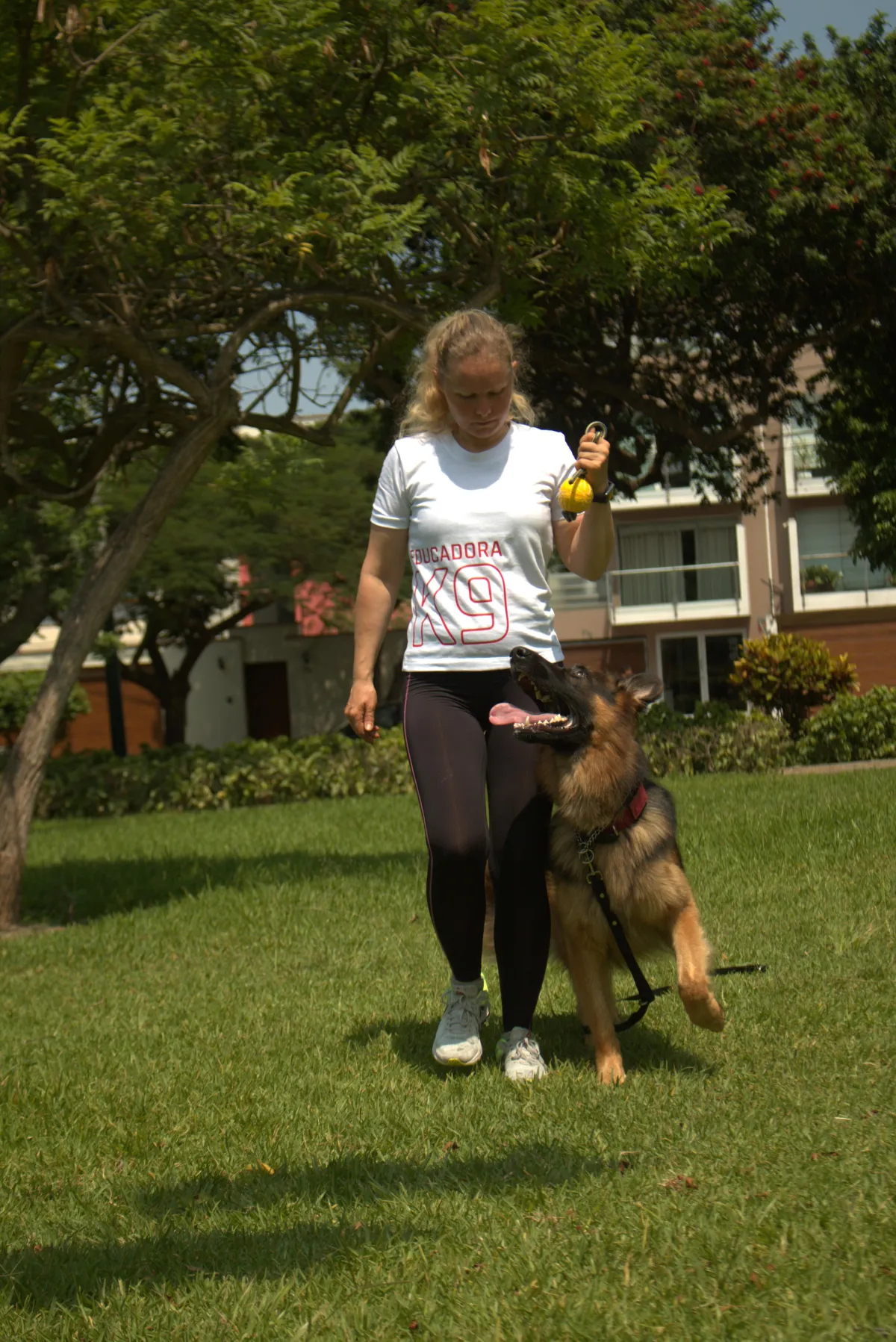
I'm Ave Polli, and I help Individuals who have adopted a puppy or a rescue dog and are eager to address behavioral issues with confidence and ease so that they can live a happy life with their pet.
Meet Ave – Your Professional Dog Trainer
My passion for dogs began at an early age, inspired by Ring dogs and the experience of training my first German Shepherd, Alfa. Although my journey initially took me in different directions, I later had the opportunity to turn my dedication to dog training into a profession.
I have been a certified dog trainer since 2022, with over five years of experience. My commitment to continuous learning has led me to complete numerous courses, expanding my expertise in obedience and behavior modification. I work with dogs of all ages and temperaments, tailoring my approach to meet the unique needs of each dog and their family.
My professional journey began during the COVID-19 pandemic when successfully training my own dog sparked interest among those around me. Witnessing the trust and harmony that training fosters between dogs and their owners remains my greatest motivation.
My mission is to help families build strong, lasting bonds with their dogs through trust, understanding, and effective training. When I am not working with dogs, I enjoy spending time with my family and reflecting on the path that led me to this fulfilling career.
Work With Me
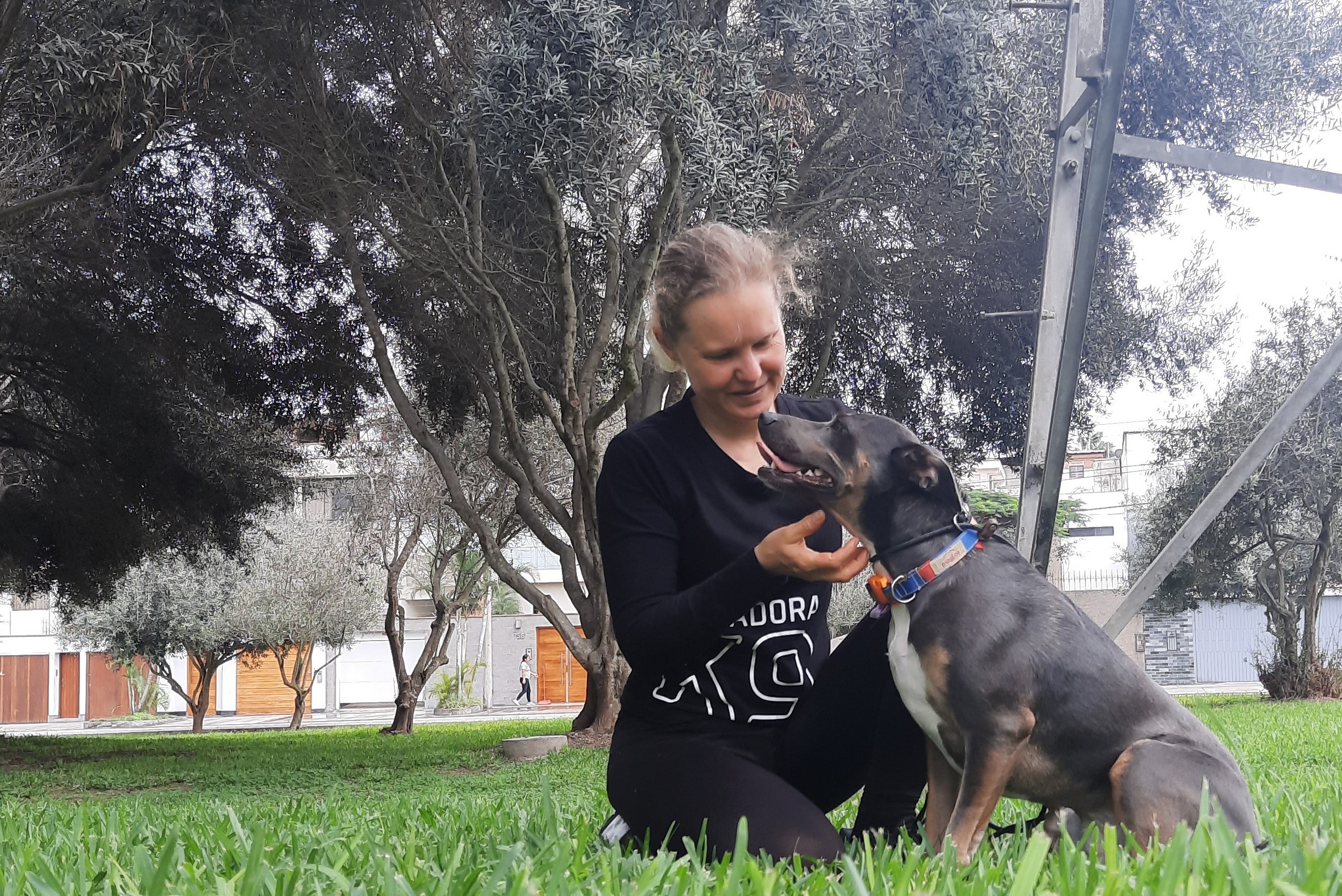
DOG TRAINING - Build a Stronger Bond Through Effective Training.
Our personalized dog training programs focus on long-term behavioral improvement through science-based methods. Whether you’re addressing obedience, socialization, or problem behaviors, we tailor each session to your dog’s unique needs and your lifestyle. With clear guidance, actionable training techniques, and ongoing support, you’ll gain the confidence and skills to build a lasting, positive relationship with your dog.
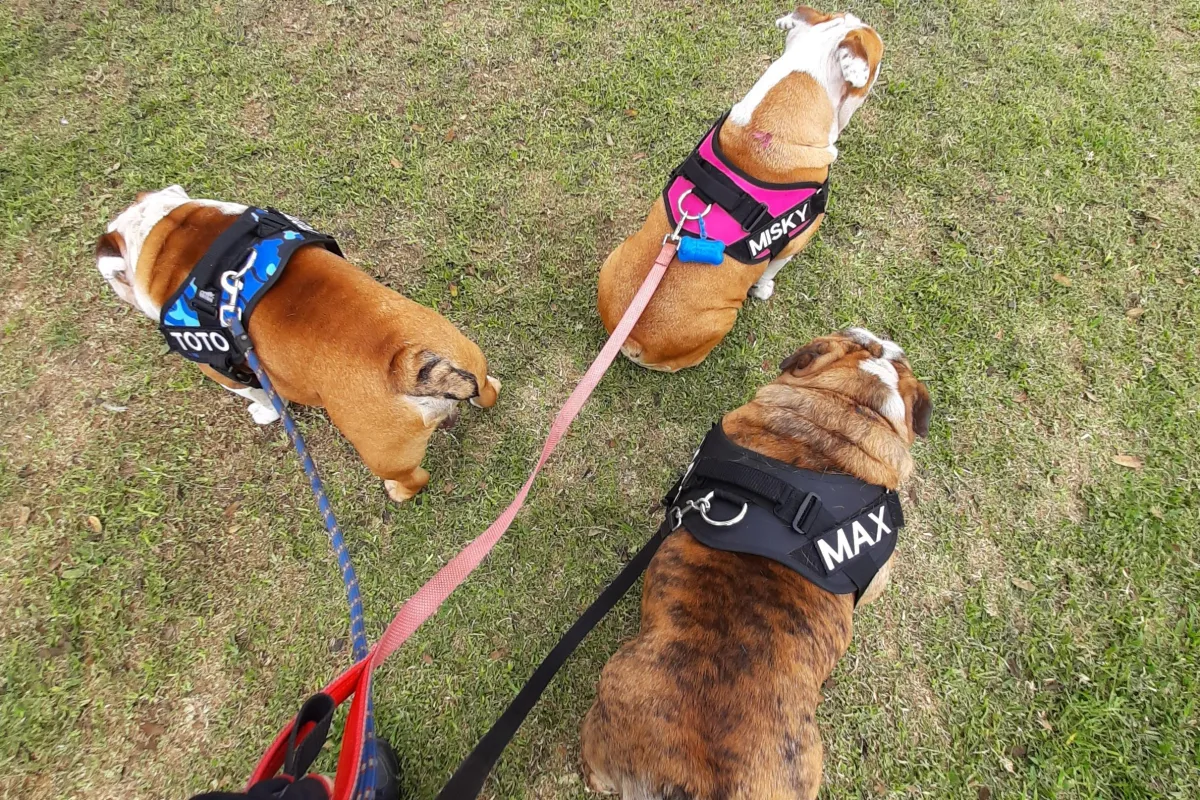
DOG WALKING - More Than a Walk, a Step Toward a Balanced Dog.
More than just a walk, our service provides structured exercise and mental stimulation to keep your dog balanced and happy. We tailor each walk to your dog’s energy level and needs, reinforcing good leash manners and confidence along the way. With reliable, professional care, you can enjoy peace of mind knowing your dog is getting the enrichment they need for long-term well-being.
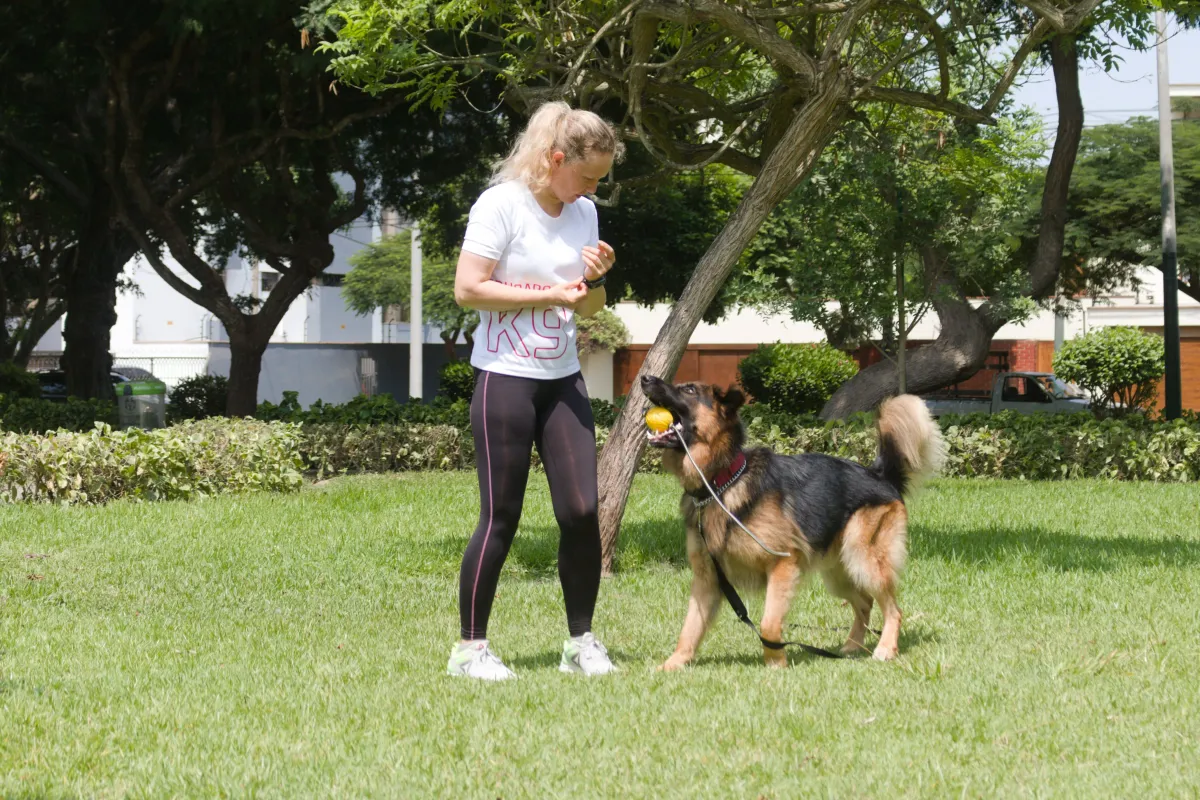
ONLINE CONSULTATIONS - Expert Guidance, Anytime, Anywhere.
Distance is no barrier to expert guidance! Our online consultations offer tailored solutions for training challenges, behavior issues, and general pet care, all from the comfort of your home. With step-by-step instructions, practical strategies, and ongoing support, you’ll gain the tools to create lasting positive change in your dog’s behavior. Whether you're a new pet owner or facing a specific challenge, we’re here to guide you every step of the way.
Success Stories
Totó
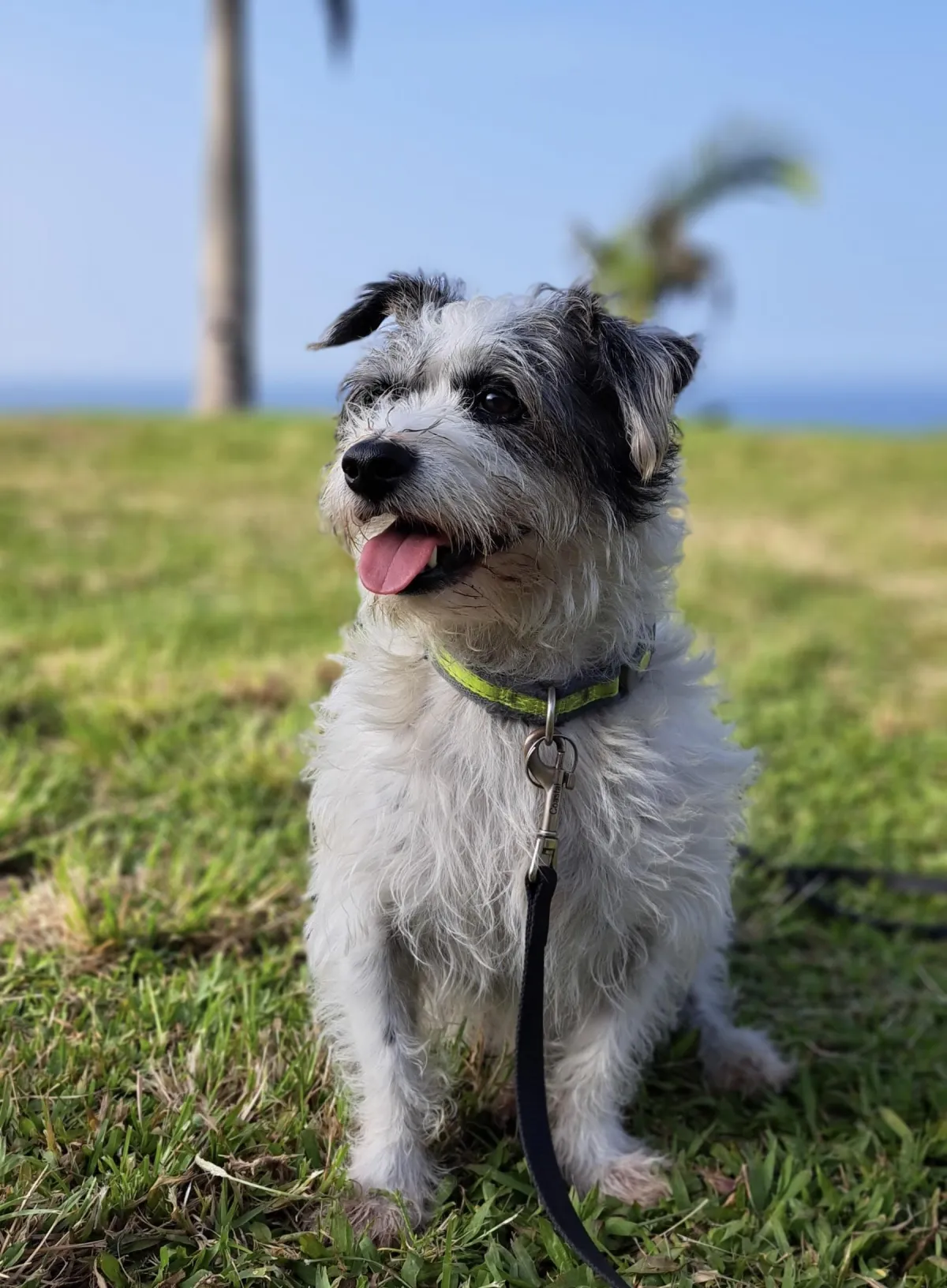
Totó is a special dog, it has never been easy to deal with him although he looks very adorable. He came to us when he was about a year and a half old and had come from living alone on the street. He is small in size, but with a very temperamental and overprotective character, he does not let people who are not his trust get close to him or his family. It is for this reason that we decided to work with Ave, so that she can help us and help Totó better manage his emotions and improve his behavior.
From day one Ave has been very patient with Totó, and has managed to gain his trust based on effort and many awards. She has shown a lot of responsibility with her work and the ability to adapt with a dog who doesn't always want to train.
We greatly appreciate the work she does with Totó and we see the improvements and patience she has with him.
Carlos Pereira
Aitor
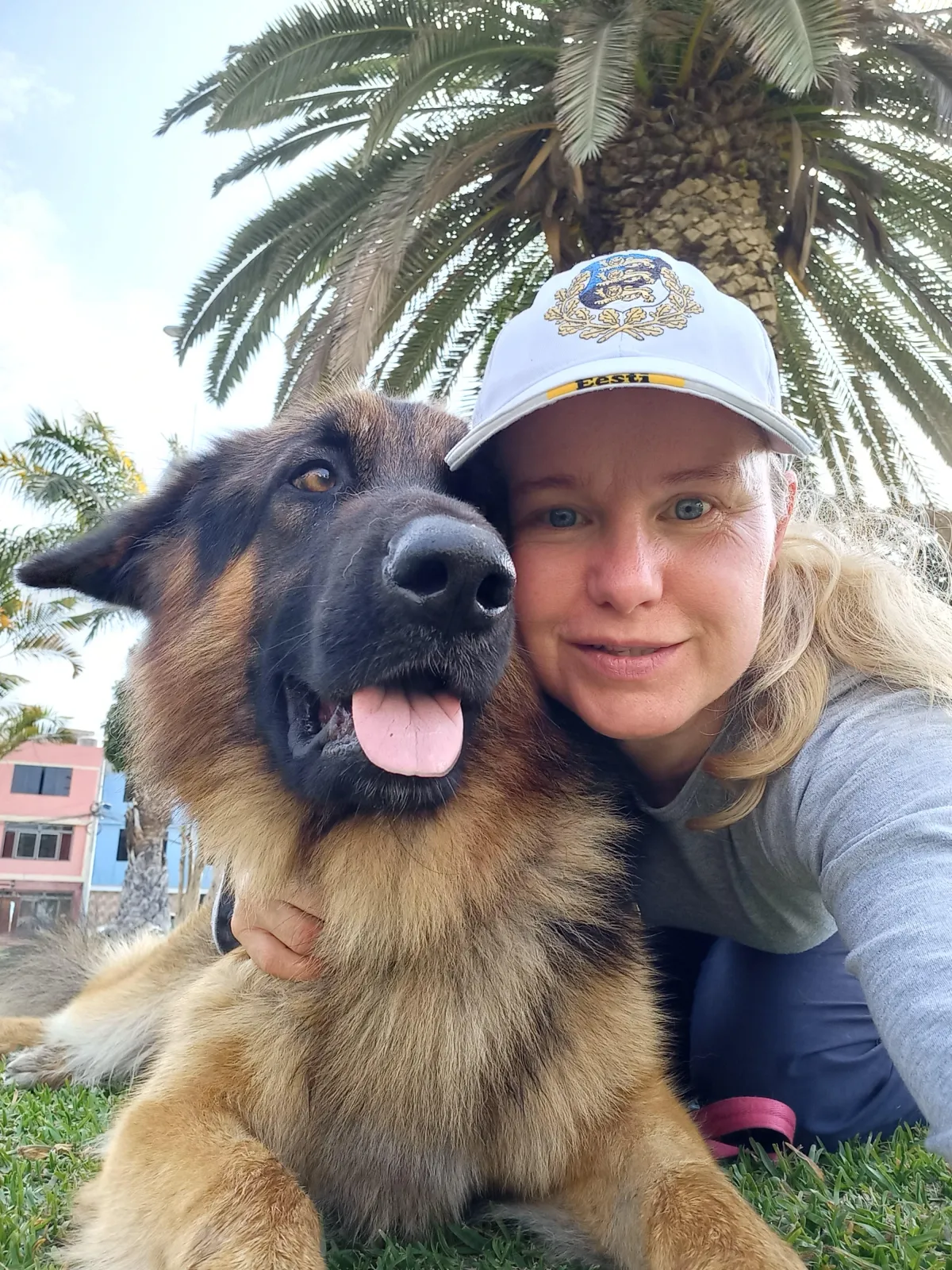
Aitor and Ave have a very close bond, she became a coach with him and as a result of that they have both learned from each other. Since then Aitor has been a very balanced dog and knows how to behave! We greatly value the effort, dedication and affection with which you train him!
Cesar and Francis
Pirata
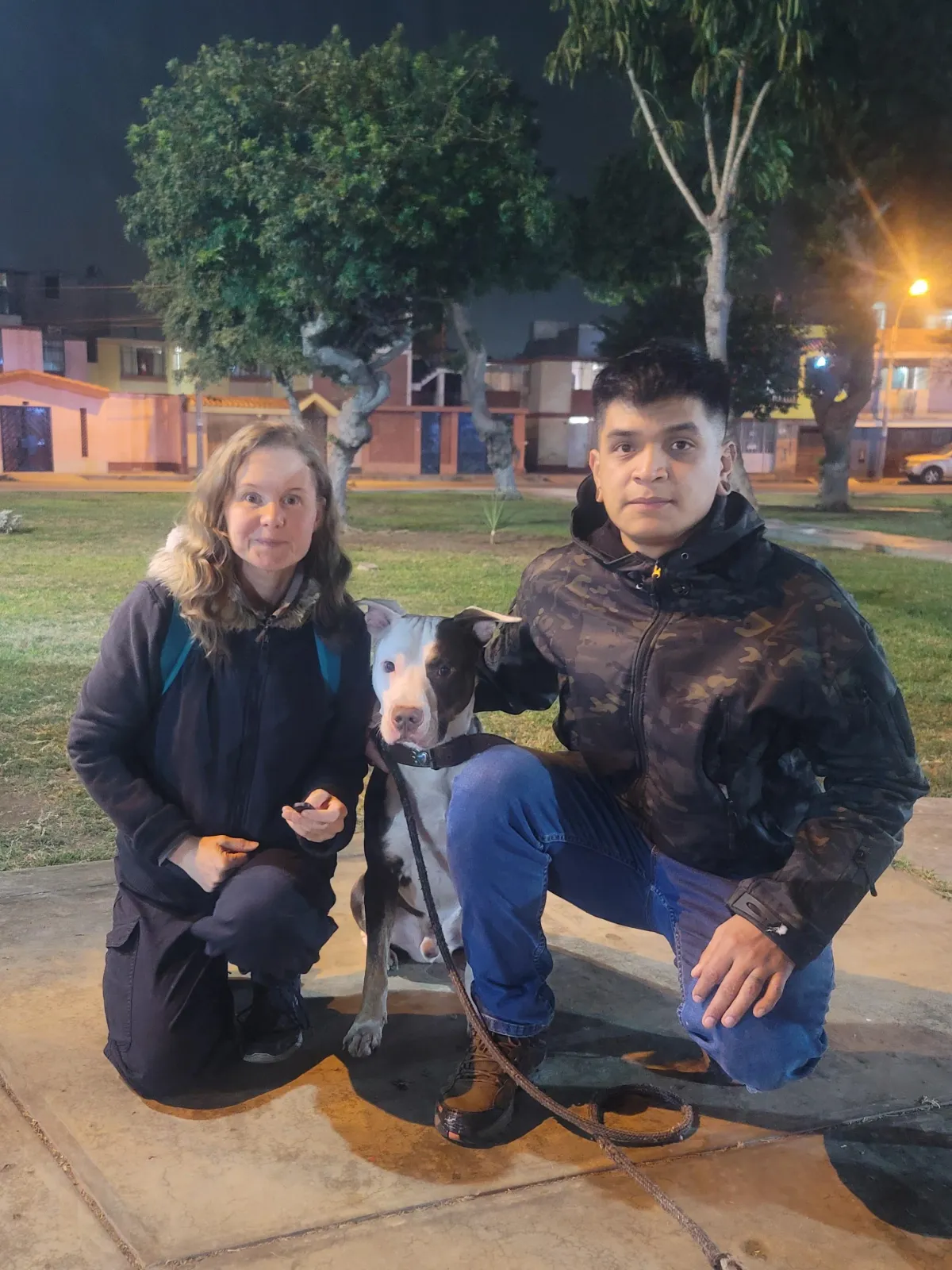
Before starting Pirata training (4 years old), he had somewhat reactive reactions to people and other dogs.
As the training sessions and PDFs progressed, I realized that the dogs' warning signs and alerts in these stressful situations were always there, but I didn't know how to recognize them.
Ave made me understand that the work isn't just with the dog because they are very intelligent, the one who needed training was "ME."
Building a healthy bond with Pirata (toys, treats, and positive words) made that connection with me easier.
My decision to seek out someone as qualified as Ave was the best. I couldn't be more satisfied with everything I've learned. All I have left to do is continue to reinforce what I've learned and refine a few details.
THANK YOU, AVE!!! I WILL BE ETERNALLY GRATEFUL FOR YOUR TEACHINGS.
Jorge Lazo
FAQ
Do you offer in-person and online training sessions?
Yes! I offer in-person training in Lima, Peru (San Miguel, Pueblo Libre, Magdalena del Mar) and Callao (La Perla, Bellavista).
My online training will be available soon as a pre-recorded course, allowing you to learn at your own pace.
Online training can be just as effective as in-person training, depending on your dog's needs. It provides flexibility and affordability, making it a great option for general obedience and behavior management. However, in-person sessions may be better for hands-on guidance or more complex behavioral issues.
What breeds and ages do you work with?
I work with all breeds and sizes, from small to large dogs, and with dogs of all ages, from puppies to adults. Whether you need help with basic obedience or more complex behavioral issues, I tailor my training approach to suit your dog's specific needs, considering their age, temperament, and challenges.
How long does it take to see results from training?
The timeframe depends on your dog's age, breed, and behavioral challenges. Training isn't just about sessions—it’s a way of living. From the moment your dog enters your home, you start teaching house rules, reinforcing what is allowed and what isn’t. For obedience training, short, consistent sessions a few times a day, every day bring the best results. Some dogs show progress in as little as two days, while rescue dogs or those with deeper behavioral issues may need months or even a year of continuous work. The key is patience, consistency, and practice!
My dog lunges and barks at other dogs or people. What can I do?
Reactivity happens when dogs feel frustrated, scared, or overly excited. The best way to help is by working at a comfortable distance from their trigger and rewarding calm behavior. Instead of waiting for your dog to react, get their attention early and reward them for focusing on you. Over time, this builds a more positive association with their triggers. Patience is key—reactivity doesn’t change overnight!
Why won’t my dog come when I call them?
If your dog ignores you, it might be because they’ve learned that coming back means the fun is over. Make recall rewarding by using a happy tone and giving a treat or playtime when they come to you. Start practicing in a distraction-free space, then gradually add distance and challenges. Also, never call them to scold them—coming to you should always be a good thing!
Why is my dog pulling on the leash, and how do I stop it?
Dogs pull because they’re excited and want to explore faster than we walk. The key to stopping leash pulling is teaching them that a loose leash gets them where they want to go. A front-clip harness can help, but training is essential. Try stopping whenever your dog pulls and only moving forward when the leash is loose. Reward them for walking beside you, and practice in a quiet area before taking on busy streets.
My dog is afraid of strangers. How can I help them feel more comfortable?
Fear of strangers is common, especially in rescue dogs or those with limited socialization. The most important thing is not to force interactions. Let your dog observe new people from a distance, and reward them for calm behavior. Ask strangers to ignore your dog rather than approaching them directly. Over time, positive experiences will help them gain confidence.
My puppy keeps biting my hands and clothes. How do I stop it?
Puppies explore the world with their mouths, but they need to learn what’s okay to bite. If your puppy nips too hard, calmly say "ouch" and stop playing for a few seconds. This teaches them that biting ends the fun. Always redirect them to a toy so they learn what’s appropriate to chew on. Avoid rough play that encourages biting, and be patient—it’s all part of growing up!
